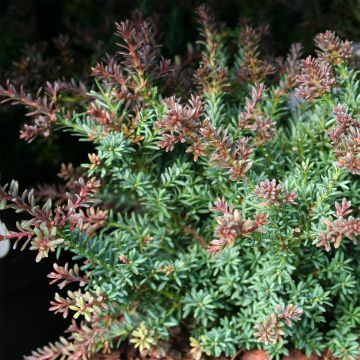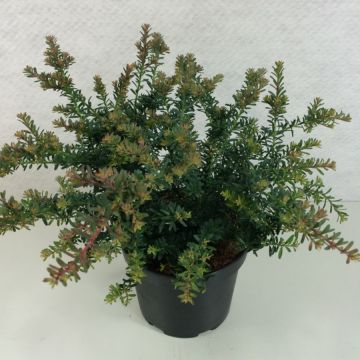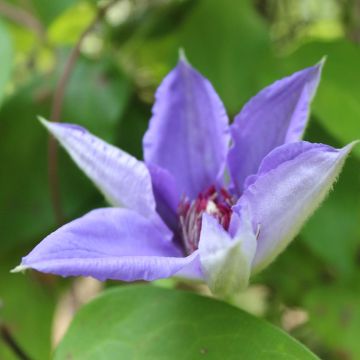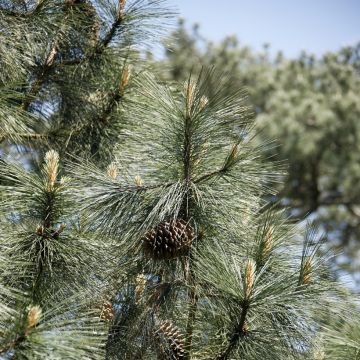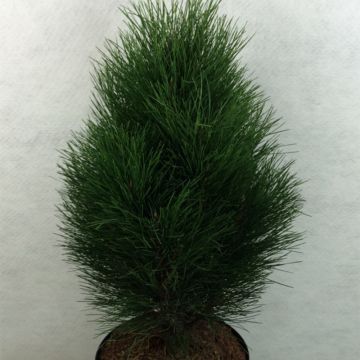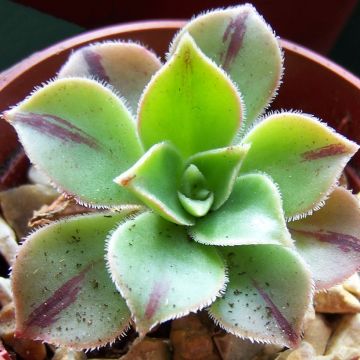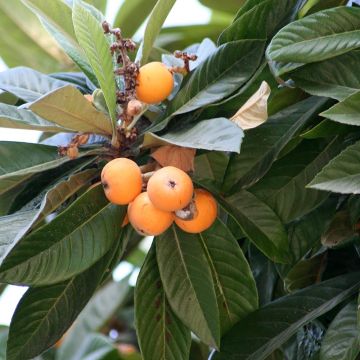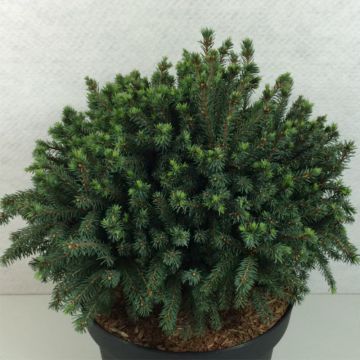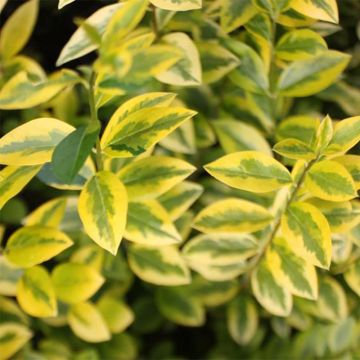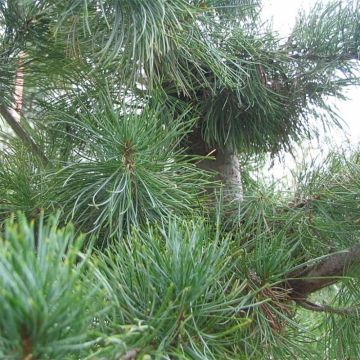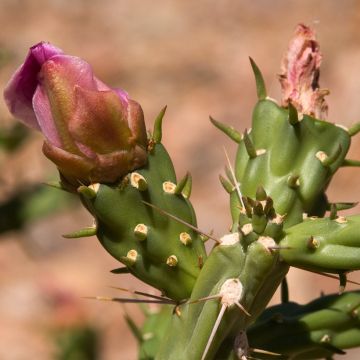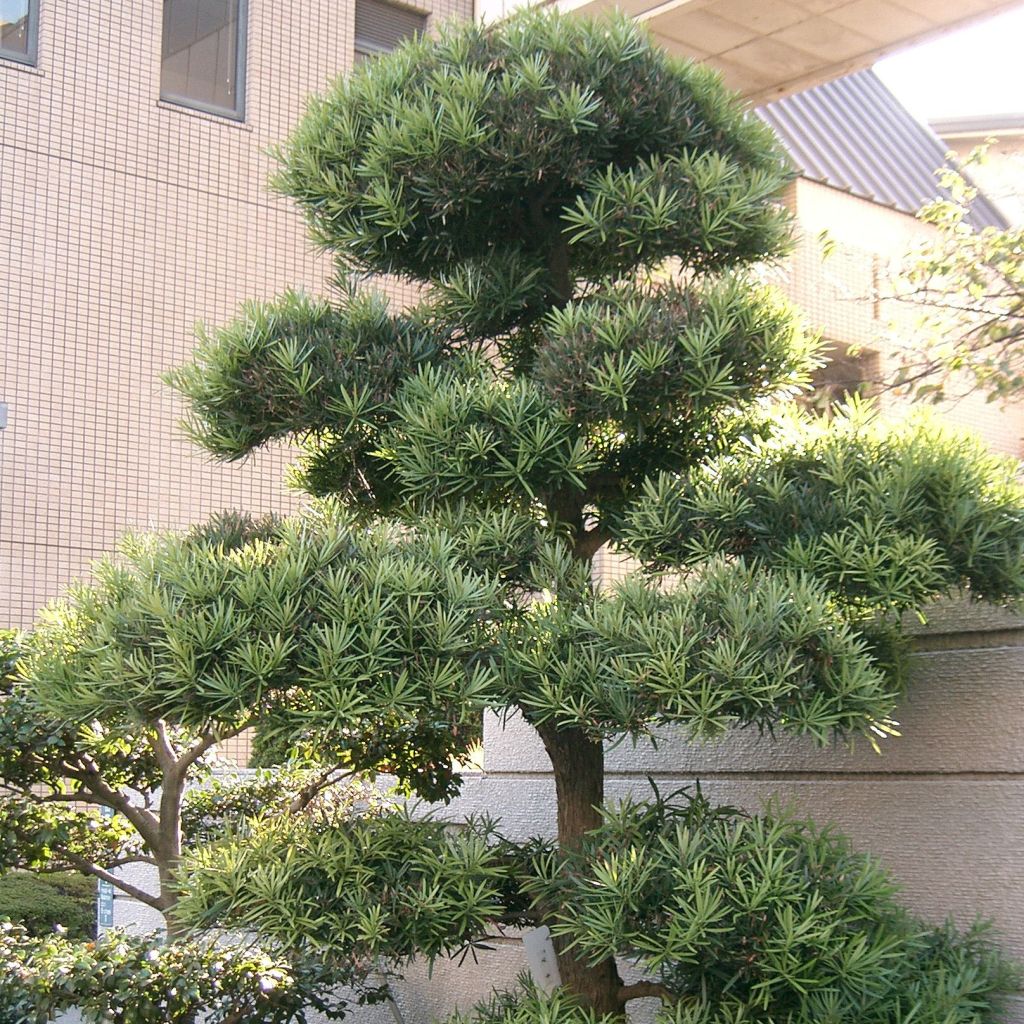

Podocarpus macrophyllus - Pin des bouddhistes
Podocarpus macrophyllus
Podocarpus macrophyllus
Yew Pine, Buddhist Pine, Fern Pine, kusamaki
The packaging was of very good quality. My bush arrived in good condition. It is very beautiful, its foliage is dense and its habit elegant. Young plant full of promises ;)
Christine , 21/01/2023
This item cannot be shipped to the selected country
Delivery charge from €5.90
More information
Delivery charge from €5.90
More information
Schedule delivery date,
and select date in basket
This plant carries a 24 months recovery warranty
More information
We guarantee the quality of our plants for a full growing cycle, and will replace at our expense any plant that fails to recover under normal climatic and planting conditions.
From €5.90 for pickup delivery and €6.90 for home delivery
Express home delivery from €8.90.

Does this plant fit my garden?
Set up your Plantfit profile →
Description
Podocarpus macrophyllus is often grown as an indoor plant, but this unusual evergreen conifer can also be planted in the garden. It can tolerate moderate frost. It impresses with its perfect columnar habit and its long, thin, flat, shiny green leaves, loosely attached to its almost horizontal branches. Its fleshy cones, resembling red or black berries, add colour to the overall appearance. In mild and humid climates, it can be used to create dense hedges that respond well to pruning. This montane plant, with a very exotic appearance, grows slowly, prefers cool environments, fertile and humus-rich soils, and is sensitive to intense sunlight.
Podocarpus macrophyllus is an evergreen conifer from the Podocarpaceae family, native to the southern mountains of China, Taiwan, and Japan. In its natural environment, it can reach over 20 metres (66 feet) in height and have a spread of 4 metres (13 feet), in rich and moist soil. In our climates, it will rarely exceed 6 metres (20 feet) in height. Over time, it forms an almost perfect column and its foliage vaguely resembles that of a yew. It consists of tough, linear leaves with rounded tips, measuring 5 to 15cm (2 to 6in) in length and 1cm (1in) in width. Their upper surface is shiny and smooth, fairly dark green, while their lower surface is more glaucous. It produces ovoid cones carried by short peduncles. At maturity, their scales swell and resemble fleshy berries, measuring 10 to 20mm (1in) in length and ranging in colour from purple to black. Birds are fond of them and greatly contribute to seed dispersal.
Podocarpus macrophyllus is often grown in pots on terraces or indoors, as it thrives in a familiar environment away from the scorching rays of the sun. It can also find its place in the garden in mild and humid climates, with an oceanic type of climate, either as a solitary plant or as a hedge. In harsh climates, it can be showcased as a rare and precious object in a large pot on the terrace or balcony, which will protect it from the coldest winters. It works wonders in a Japanese garden, perfectly suited to the art of bonsai and harmonizing well with large stones, geometric lines, and masonry works. It can be combined with complementary grasses or sacred bamboo. The true graphic qualities of conifers naturally come to the fore in the design of a contemporary garden, which prioritizes the aesthetics of forms, silhouettes, and textures over the dance of flowering plants. These reassuringly permanent plants provide lasting structure to flower beds, mark pathways, adorn terraces or balconies, and happily replace the strong presence of trimmed boxwood or holly. The key is to play with volumes and colours.
Podocarpus macrophyllus in pictures
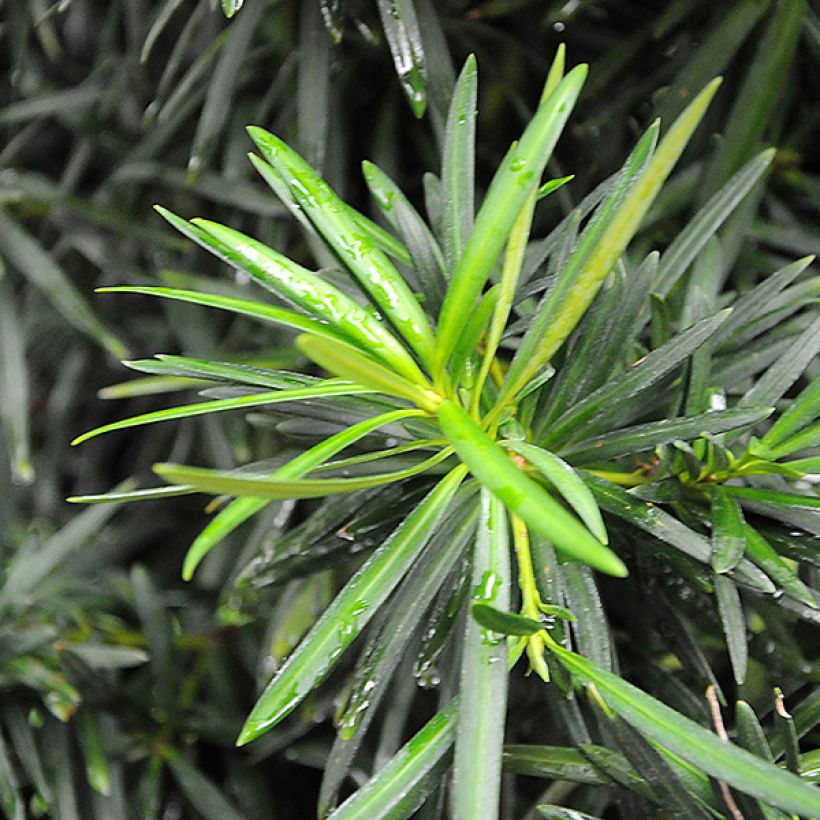

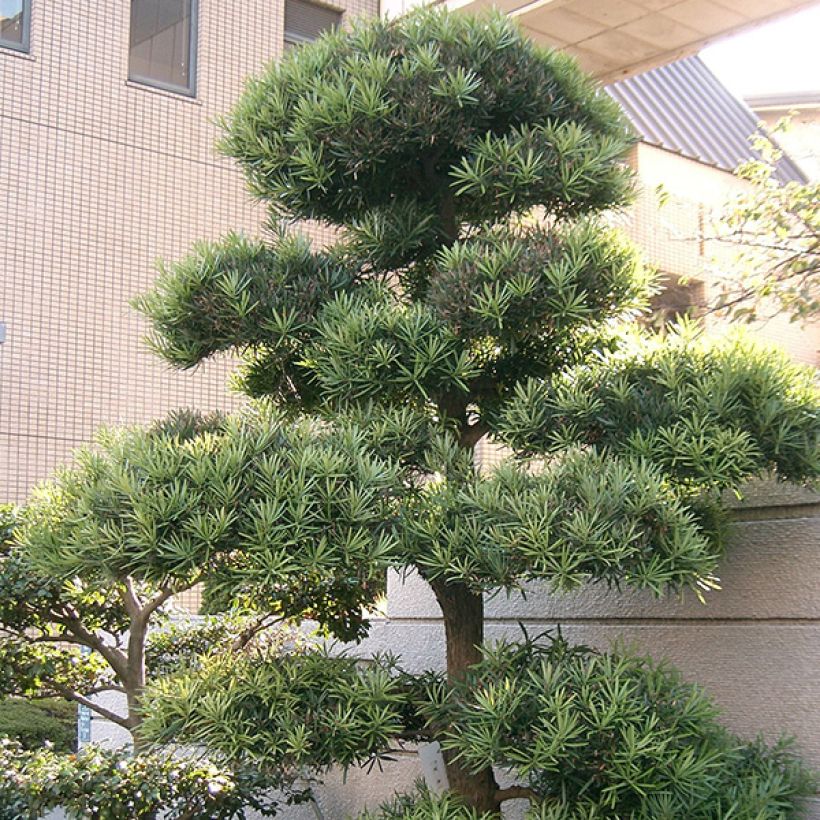

Plant habit
Flowering
Foliage
Botanical data
Podocarpus
macrophyllus
Podocarpaceae
Yew Pine, Buddhist Pine, Fern Pine, kusamaki
Southeast Asia
Other Podocarpus
Planting and care
Podocarpus macrophyllus, also known as the yew plum pine, should be planted from September to November and from February to June in well-drained, moist, fertile, and humus-rich soil that is neutral to slightly acidic. It is sensitive to heavy, dry soils in summer and extreme heat. Choose a partially shaded location, such as one with filtered sunlight from the east, and sheltered from prevailing winds. Soak the root balls thoroughly before planting. Add organic amendments to the planting hole and water generously for the first two years, especially during dry spells. In April, you can apply a special conifer fertilizer and regularly weed the soil during summer. This hardy conifer can tolerate temperatures as low as -7/-10°C (19.4/14°F) and can be successfully grown in a container that is stored in a cool place or indoors during winter, with regular misting of the foliage. Pruning can be done as needed throughout the year, with structural pruning done in winter.
Planting period
Intended location
Care
-
, onOrder confirmed
Reply from on Promesse de fleurs
Evergreen shrubs
Haven't found what you were looking for?
Hardiness is the lowest winter temperature a plant can endure without suffering serious damage or even dying. However, hardiness is affected by location (a sheltered area, such as a patio), protection (winter cover) and soil type (hardiness is improved by well-drained soil).

Photo Sharing Terms & Conditions
In order to encourage gardeners to interact and share their experiences, Promesse de fleurs offers various media enabling content to be uploaded onto its Site - in particular via the ‘Photo sharing’ module.
The User agrees to refrain from:
- Posting any content that is illegal, prejudicial, insulting, racist, inciteful to hatred, revisionist, contrary to public decency, that infringes on privacy or on the privacy rights of third parties, in particular the publicity rights of persons and goods, intellectual property rights, or the right to privacy.
- Submitting content on behalf of a third party;
- Impersonate the identity of a third party and/or publish any personal information about a third party;
In general, the User undertakes to refrain from any unethical behaviour.
All Content (in particular text, comments, files, images, photos, videos, creative works, etc.), which may be subject to property or intellectual property rights, image or other private rights, shall remain the property of the User, subject to the limited rights granted by the terms of the licence granted by Promesse de fleurs as stated below. Users are at liberty to publish or not to publish such Content on the Site, notably via the ‘Photo Sharing’ facility, and accept that this Content shall be made public and freely accessible, notably on the Internet.
Users further acknowledge, undertake to have ,and guarantee that they hold all necessary rights and permissions to publish such material on the Site, in particular with regard to the legislation in force pertaining to any privacy, property, intellectual property, image, or contractual rights, or rights of any other nature. By publishing such Content on the Site, Users acknowledge accepting full liability as publishers of the Content within the meaning of the law, and grant Promesse de fleurs, free of charge, an inclusive, worldwide licence for the said Content for the entire duration of its publication, including all reproduction, representation, up/downloading, displaying, performing, transmission, and storage rights.
Users also grant permission for their name to be linked to the Content and accept that this link may not always be made available.
By engaging in posting material, Users consent to their Content becoming automatically accessible on the Internet, in particular on other sites and/or blogs and/or web pages of the Promesse de fleurs site, including in particular social pages and the Promesse de fleurs catalogue.
Users may secure the removal of entrusted content free of charge by issuing a simple request via our contact form.

































